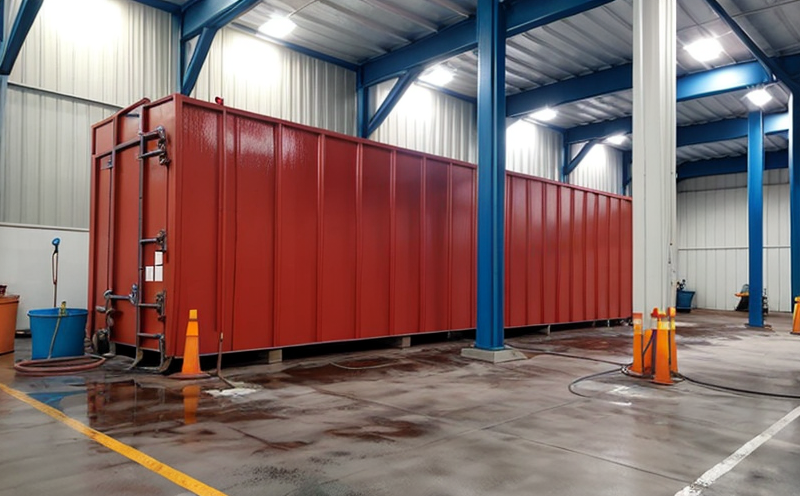ASTM D523 Gloss Measurement Testing of Paints Validation Method Development Test
The ASTM D523 test standard is a widely recognized method used to measure the specular gloss of paints, varnishes, and similar materials. Specular gloss refers to the ability of a material to reflect light in a mirror-like manner. This measurement is crucial for determining how well a coating will perform under different lighting conditions, which can significantly impact its aesthetic appeal and functionality.
When validating methods using ASTM D523, it's essential to ensure that all steps are meticulously followed. Specimen preparation involves applying the paint sample onto a suitable substrate according to specific dimensions outlined in the standard. The prepared specimens must then be allowed to cure under controlled conditions before undergoing gloss measurement.
The testing process itself typically requires specialized equipment capable of accurately measuring specular gloss angles over a range that suits the particular application. For instance, in industrial manufacturing, where high-gloss finishes are often sought after for both appearance and durability reasons, understanding how various factors like curing time or temperature affect the final product is critical.
Validation tests help manufacturers confirm their processes meet industry standards and customer expectations consistently across batches. By rigorously adhering to ASTM D523 guidelines during validation activities, companies can demonstrate compliance with relevant regulations while also showcasing superior quality control practices.
Incorporating advanced technologies into the testing process allows for more precise results and greater consistency between measurements taken by different operators or at various locations. With continuous improvements in instrumentation, laboratories now have access to sophisticated tools that not only enhance accuracy but also streamline workflow.
For quality managers and compliance officers responsible for ensuring adherence to international standards like ASTM D523, understanding the nuances of this testing methodology is key. It enables them to make informed decisions about process adjustments needed to achieve optimal product performance.
R&D engineers working on developing new coatings or improving existing ones benefit greatly from thorough validation using ASTM D523 because it provides reliable data upon which further enhancements can be based. This ensures that any modifications made do not compromise the integrity of the coating's physical properties but instead improve them where necessary.
Procurement teams also play a vital role in ensuring suppliers meet these stringent requirements by specifying ASTM D523 as part of their procurement specifications. By doing so, they contribute to maintaining high standards throughout the supply chain.
Eurolab Advantages
- State-of-the-art equipment ensures precise and consistent results every time.
- A highly qualified team with extensive experience in ASTM D523 testing.
- Comprehensive support services including method development, validation assistance, and training sessions.
- Access to the latest technological advancements for more accurate measurements.
Customer Impact and Satisfaction
By leveraging Eurolab's expertise in ASTM D523 testing, customers enjoy several key benefits:
- Confidence that their products meet the highest industry standards.
- Rapid turnaround times for critical projects thanks to efficient workflow management.
- Cost savings through optimized processes and reduced rework due to accurate testing early in the development cycle.
- Enhanced reputation among clients and partners who appreciate reliable, high-quality products.
Competitive Advantage and Market Impact
Adopting rigorous ASTM D523 testing practices offers numerous competitive advantages:
- It demonstrates a commitment to quality, which can differentiate your products in the marketplace.
- Predictable performance across different environments due to consistent gloss levels ensures customer satisfaction and loyalty.
- The ability to adapt quickly to changing market demands through continuous improvement initiatives based on validated data.





